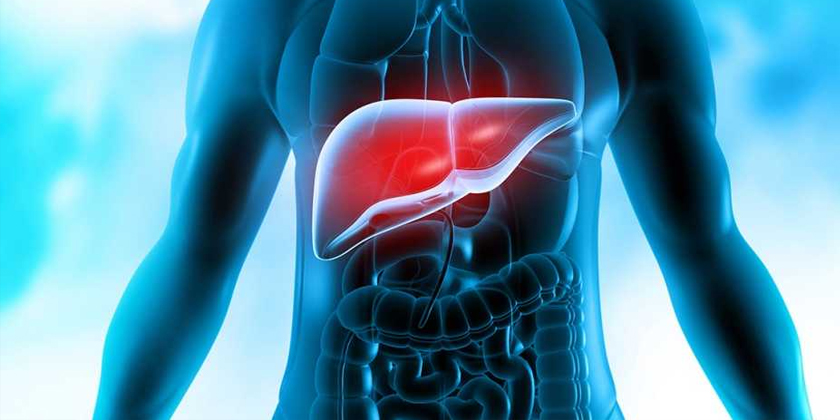Is Your Liver in Trouble? Try These 7 Powerful Detox Strategies
Is Your Liver in Trouble? 7 Evidence-Based Strategies for Liver Health
The liver functions as a crucial organ with over 500 responsibilities including detoxification and metabolism yet remains susceptible to today’s modern lifestyle patterns. Liver troubles can manifest as fatigue, bloating, poor digestion, or skin problems as a result of processed food consumption together with alcohol and environmental toxins (Healthline, 2024). Liver detox products enjoy popularity among consumers yet doctors such as Tinsay Woreta, M.D. from Johns Hopkins Medical Center advise against their use because they neither receive FDA regulation nor demonstrate clinical proof (Johns Hopkins Medicine, 2025). inspired habits of moderation and awareness can promote better liver health through mindful and balanced living. Here are seven powerful, science-backed strategies.
1. Limit Alcohol Intake
Consuming too much alcohol damages the liver which results in alcoholic liver disease. Research from Johns Hopkins Medicine (2025) suggests men should drink no more than three beverages daily and women should limit themselves to two.
- Practice: People should substitute alcoholic drinks with herbal teas such as green tea because its antioxidants have the potential to decrease liver fat (Times of India, 2019).
- Benefit: A 2–3 week period of alcohol abstinence heals fatty liver according to Northstar Behavioral Health (2024).
2. Eat a Nutrient-Rich Diet
The liver’s natural detoxification processes receive support from consuming a balanced diet.
- Practice: Your daily diet should consist of 5–9 servings of vegetables and fruits such as leafy greens like spinach and kale and cruciferous vegetables like broccoli and cabbage because they contain sulfur compounds that help detoxify the body (PSRI Hospital, 2022). The Deep Ayurveda 2024 guide recommends including sweet potatoes and bananas as part of a potassium-rich diet.
- Benefit: Minimizes liver stress while enhancing antioxidant protection (Journal of Mindfulness, 2023).
3. Stay Hydrated
Water aids the liver in flushing toxins. simplicity encourages mindful hydration.
- Practice: Ensure you consume between eight and ten glasses of room temperature filtered water each day. Incorporating lemon juice provides vitamin C that helps produce bile (Patient First, 2025).
- Benefit: Prevents dehydration to protect liver function (Patient First, 2025).
4. Exercise Regularly
Physical activity matches ideas about disciplined work by improving blood flow and lessening liver fat levels.
- Practice: Perform 30 minutes of moderate physical activity such as walking, yoga or swimming each day. The practice of gentle yoga twists enhances liver function according to research published in Journee Mondiale (2024).
- Benefit: Maintaining healthy weight lowers your risk of developing nonalcoholic fatty liver disease according to Johns Hopkins Medicine (2025).
5. Consider Evidence-Based Supplements
Detox supplements lack scientific validation yet particular herbs demonstrate potential benefits. Buddhist discernment applies: consult a doctor first.
- Practice: Although milk thistle seems to lower liver inflammation and turmeric might protect against liver damage, clinical evidence supporting these claims remains limited according to Johns Hopkins Medicine (2025). Patients should stay away from high-dose green tea extracts because they can damage the liver (PMC, 2025).
- Benefit: Anti-inflammatory benefits exist according to research but lifestyle modifications remain essential (Healthline, 2023).
6. Reduce Processed Foods
High levels of sugars and additives in processed foods place excessive stress on the liver.
- Practice: Eliminate junk foods and fried products from your diet while keeping your added sugar consumption under 20–30 grams per day. Replace processed ingredients with whole grains and nutritious fats found in flaxseeds (Times of India, 2019).
- Benefit: The Deep Ayurveda 2024 report states that certain dietary practices help to reduce liver workload and prevent fat accumulation.
7. Practice Mindful Stress Management
Stress impacts liver health via inflammation. Meditation techniques including vipassana and maitri (loving-kindness) produce states of tranquility.
- Practice: Practicing mindfulness or breath-focused meditation for 5–10 minutes each day follows the teachings of the Anapanasati Sutta. Journal gratitude to reinforce purpose.
- Benefit: Mindfulness practices decrease levels of stress hormones which benefits whole-body health (Journal of Mindfulness, 2023).
Why Avoid Detox Cleanses?
Scientific evidence does not support liver cleanses, juice fasts or detox drinks because they can lead to nutrient deficiencies and dehydration (Healthline, 2020). Healthy people can rely on their liver’s two-phase detoxification process to eliminate toxins thus eliminating the need for detox cleanses according to Medical News Today which suggests focusing on sustainable habits.
Signs Your Liver Needs Attention
- Bloating combined with irregular digestion and ongoing fatigue indicates liver problems according to Deep Ayurveda 2024.
- Your skin may develop acne or react negatively to chemical substances (MedicineNet, 2021).
- Anyone who notices their eyes or skin turning yellow (jaundice) should seek medical care at once.
Conclusion
A purposeful lifestyle that incorporates mindfulness better supports liver health than quick-fix detox methods. Your liver remains strong through drinking less alcohol while eating nutritious meals alongside sufficient water intake and regular exercise combined with careful supplement use alongside reduced processed food consumption and stress management. These habits develop healthier and more meaningful living through their foundation in Buddha’s teachings about balance and awareness. Implement changes in small steps and maintain regular habits while seeking advice from a healthcare professional to tailor your approach.



